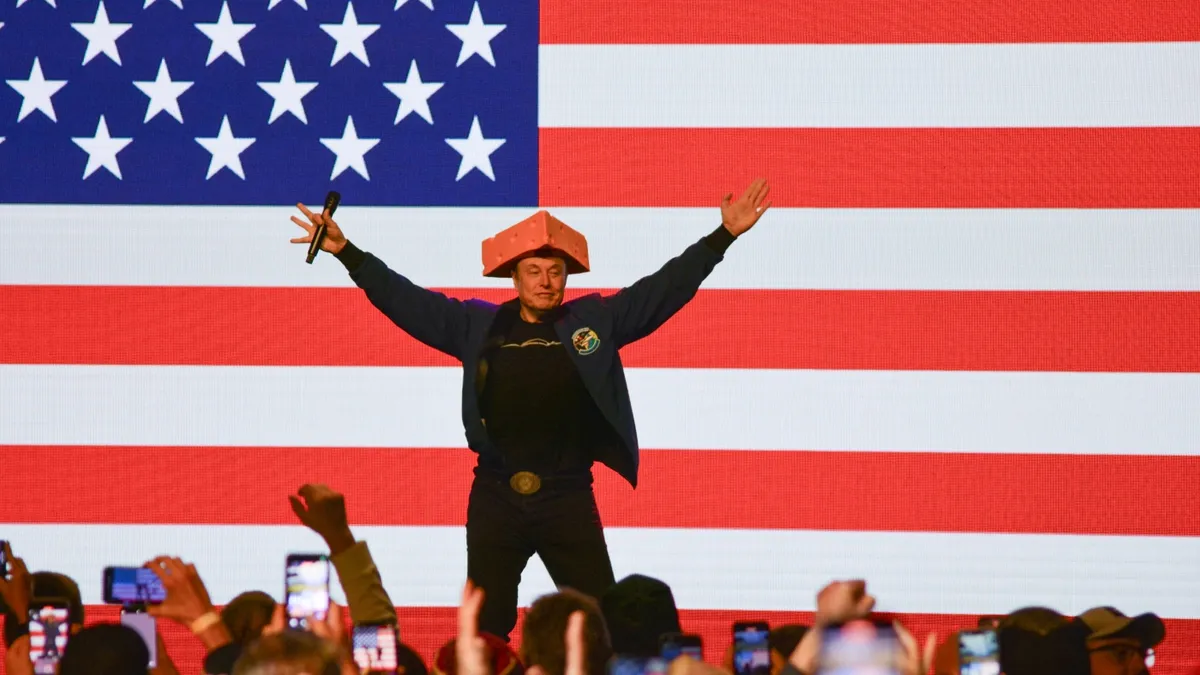
Welcome to the Up First newsletter! If you want to stay updated with the latest news delivered directly to your inbox, subscribe here. Additionally, don't miss the Up First podcast for a concise overview of all the news you need to kick off your day.
Today, Wisconsin voters are heading to the polls for a pivotal Supreme Court election, which is being touted as the most expensive court race in U.S. history. High-profile donors, including billionaire Elon Musk, have poured millions into the campaign to influence the selection of the next justice. Musk even held a rally in the state on Sunday to support conservative candidate Brad Schimel over his opponent, Susan Crawford.
This nonpartisan election is crucial, as the outcome will determine the ideological balance of the court, featuring a clear divide between liberal and conservative candidates. According to Anya van Wagtendonk of NPR's Wisconsin Public Radio, the election serves as a litmus test for voter sentiment regarding President Trump's early months in office. Significant legal issues are at stake, including abortion law, labor law, and collective bargaining rights.
Meanwhile, in Florida, Democrats are optimistic about potentially flipping at least one congressional seat as voters participate in two special elections. Both seats were previously held by Republicans—former Congressmen Mike Waltz and Matt Gaetz. Notably, the Democratic candidates have outperformed their Republican counterparts in fundraising efforts.
Both Republican candidates have received endorsements from Trump. In the panhandle, Jimmy Patronis is facing off against Democrat Gay Valimont, who previously lost to Gaetz by over 30 points. On Florida's east coast, Randy Fine is competing against Democrat Josh Weil. Recent polls show Weil trailing Fine by only three or four points, which has given Democrats hope for a comeback after significant losses in the November elections.
Investors are gearing up for President Trump's next phase in his ongoing trade war, which he has dubbed "Liberation Day." Tomorrow, he is expected to announce a new set of tariffs designed to match the duties imposed by other countries on American goods. These tariffs could lead to higher prices and provoke retaliatory actions against U.S. exports, as noted by NPR's Scott Horsley.
The Trump administration's unpredictable approach to tariff announcements has added a layer of uncertainty for businesses, making long-term planning increasingly difficult. One of the most heavily protected industries in the U.S. is sugar, where high trade barriers against imports drive up costs. This protectionism allows U.S. sugar producers to reap higher profits but also makes sugar more expensive for consumers and businesses, potentially driving some out of the market.
In Livingstone, Zambia, three dedicated members of an Elephant Response Team are working tirelessly to mitigate the escalating human-wildlife conflict exacerbated by urban expansion and erratic rainfall patterns. Team member Chamunolwa Jimayi often drives a pickup truck to guide elephants away from residential areas, highlighting the delicate balance between human communities and wildlife.
Photographer Tommy Trenchard captured compelling images of this conflict, showcasing the struggles faced by both hungry elephants and local residents. His work has garnered recognition as a winner in the 2025 World Press Photo contest, bringing attention to the ongoing challenges within the community.
In a thought-provoking new play on Broadway titled "Purpose," acclaimed playwright Branden Jacobs-Jenkins invites audiences to explore the concept of personal and familial purpose. Jacobs-Jenkins, who earned a Tony for his previous work "Appropriate," challenges viewers to reflect on their identities and the legacies they inherit.
The narrative loosely mirrors the family history of Rev. Jesse Jackson, featuring an aging patriarch, an underestimated wife, and two sons with contrasting ambitions. One son grapples with self-sabotage in his political career, while the other yearns to escape the pressures of public life. The play raises profound questions about whose vision of history prevails and the cost of that legacy, making it a timely and relevant exploration of identity and purpose.